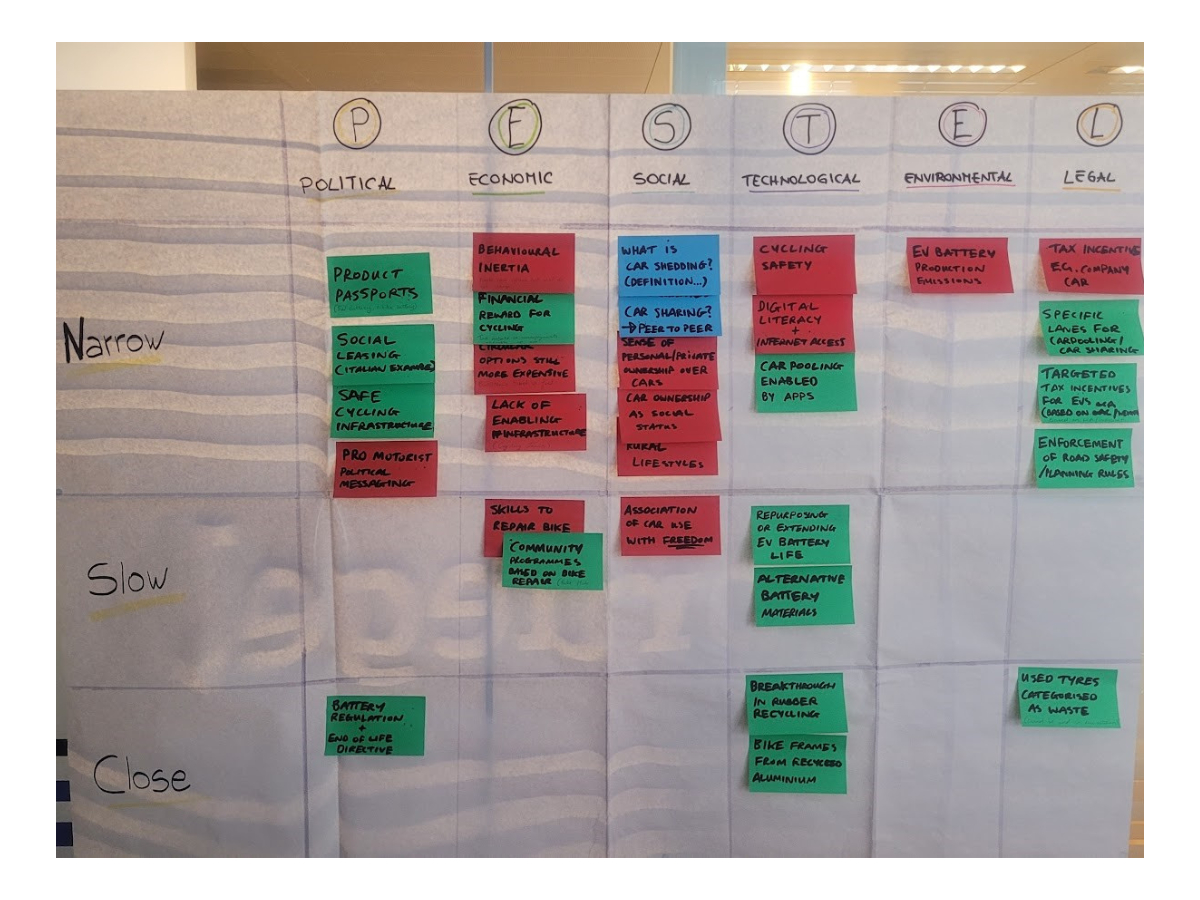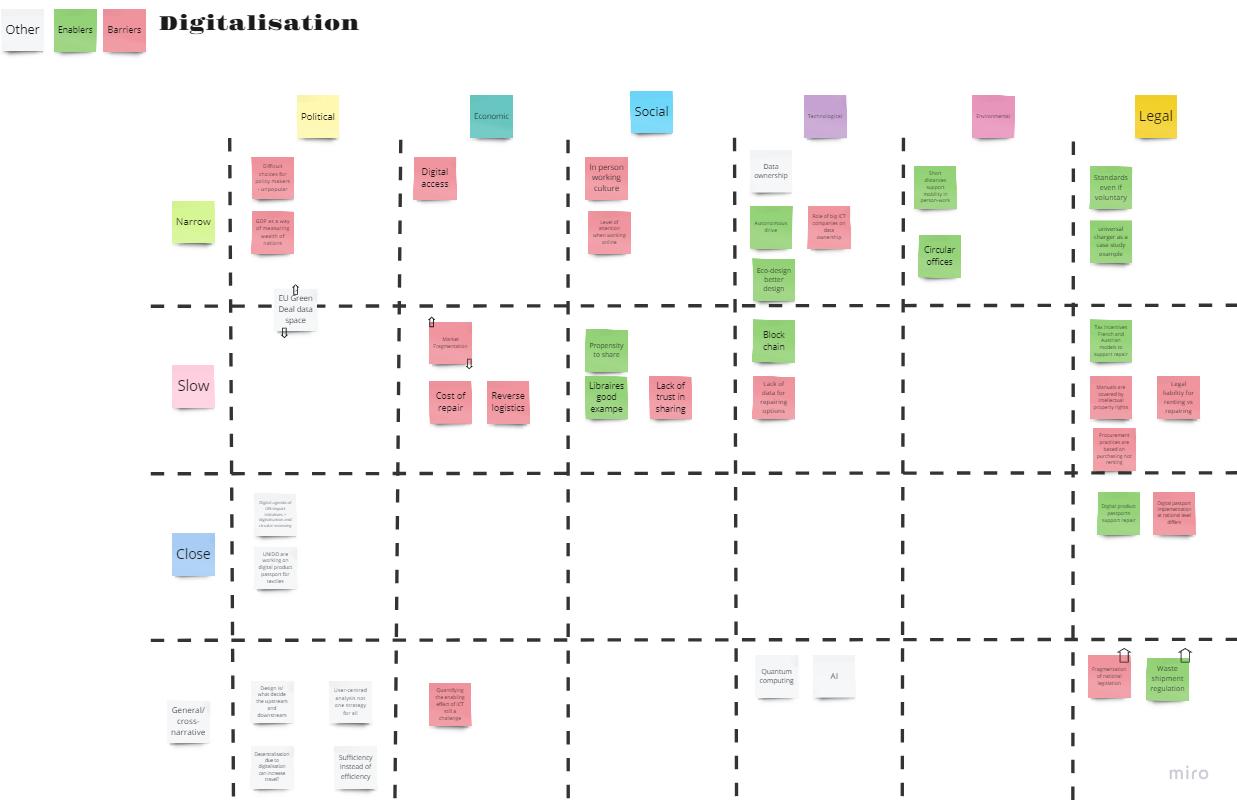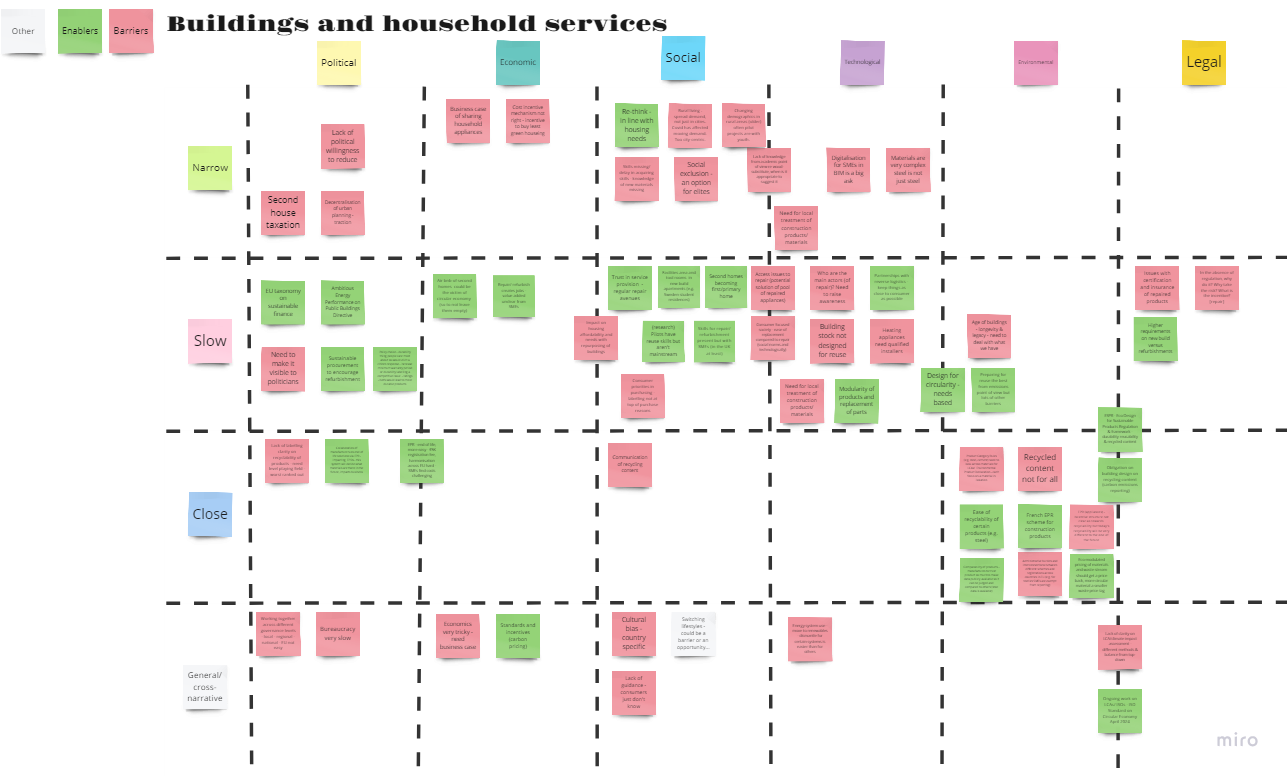Building on the ‘Towards Net-Zero through a Circular Economy’ workshop, which took place on March 14th in Brussels, T6 Ecosystems analysed the insights originating from this engagement process to help Consortium partners inform the narratives and modelling parameters adding richness and real-world relevance to the research.
Over the past few weeks, T6 Ecosystems has been busy going through the myriad of post-its generated around the Narrow-Slow-Close narratives and the PESTLE factors (political, economic, social, technological, legal and environmental) for each focus area – mobility, digitalisation, and buildings and household services. The wall charts developed in the breakout groups (see photos) have been checked and transferred into a MIRO board (see photos). The team drafted an internal briefing note highlighting the key factors, barriers, opportunities and cross-cutting themes. This note will be used by Consortium research partners to shape and inform the research specifically the modelling parameters and narratives.
Here we go through the suggested key PESTLE factors in turn and highlight the key cross-cutting themes and suggestions to enable circular economy actions towards net-zero.
From a political/policy viewpoint, key themes included to:
- Capitalise on cross-product, cross-country and cross-industry policy initiatives like Extended Product Responsibility and Digital Product Passports rather than working in silos;
- Consider the role standards can play in fostering changes towards circularity (e.g., LCA, ISO);
- Ensure that the political and policy landscape is ready for the specific circular actions proposed, asking whether both political will and scientific evidence are working in sync.
From an economic perspective, it was deemed important that the suggested actions consider costs, ensuring a good business case to support the circular actions.
The social aspects were often considered the most salient for the development of the scenarios. Specifically, stakeholders highlighted the need to:
- Ensure that the narratives and policy measures proposed are responsive to the differences of rural, suburban and urban lifestyles;
- Verify that the changes being asked of citizens and organisations are presented as opportunities;
- Account for the skills gap in both repair and digital literacy as these are relevant for enabling more circular actions;
- Consider any access issues, especially to ICT, to ensure a socially just transition.
Technological factors focused on embedding circularity in the design of products, for example through modularity, enabling better repair, reuse and repurposing. Another important factor was to better agree data protocols in terms of use, ownership, definitions and implications (especially relevant for digitalisation and mobility). Stakeholders thought that ICT could be framed as an enabler in the right policies ensuring that any management or cultural barriers at the organisation level are overcome.
From a legal framework, according to stakeholders, simply ensuring better enforcement of existing European regulations would go a long way in enabling circular actions. Thinking about the environmental factors, making sure that the actions suggested are low-risk and easy for organisations, citizens and consumers to implement is paramount to uptake.
This stakeholder feedback adds depth and real-world, practical pertinence to the research. Going forward, the project will keep the momentum going through news digests, focus area specific webinars, and other workshops. Given this creation of a community of interest around CircEUlar, the objective is to nurture and expand it, by asking stakeholders to react, feed into and validate research approaches and findings.





